 With hospital medicine a newer specialty, mentorship has an extra special role, say several hospitalist leaders who have spent much of their careers serving as mentors for others. Mentoring helps newer hospitalist leaders to grow and try new experiences, such as research. It also can serve as a guiding light for newer hospitalists struggling to balance work and life obligations or handling certain clinical situations.
With hospital medicine a newer specialty, mentorship has an extra special role, say several hospitalist leaders who have spent much of their careers serving as mentors for others. Mentoring helps newer hospitalist leaders to grow and try new experiences, such as research. It also can serve as a guiding light for newer hospitalists struggling to balance work and life obligations or handling certain clinical situations.
Mentoring relationships aren’t just for senior and junior hospitalist pairs. They also can form between peer or near-peer hospitalists who may serve in different roles that can mutually nurture each other.
In celebration of Women in Medicine Month, The Hospitalist spoke to several leaders who’ve been recognized for their mentoring.
Jagriti Chadha, MD, MPH, FACP, SFHM
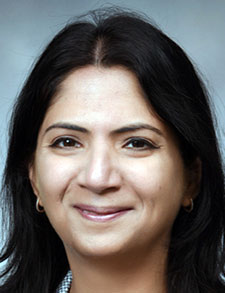
Dr. Chadha
Dr. Chadha is an associate professor of medicine, advanced development director of internal medicine, medical director for physician development in the division of hospital medicine, and associate vice chair for faculty development and advancement in internal medicine at the University of Kentucky in Lexington.
She has served in a variety of faculty and mentorship roles in her 13-plus years at the University of Kentucky. One program she helped start in her department is called WISE, which stands for Women in Internal Medicine Sessions for Empowerment, where they bring in women leaders to talk about how they got to their current role and discuss any current challenges.
One thing Dr. Chadha particularly enjoys is watching her mentees succeed, whether that means getting into a residency program or taking on a leadership position. “It’s that giving-back feeling, or feeling like helping the next generation,” she said.
Dr. Chadha believes that the newness of hospital medicine makes the role of mentoring even more key. “I feel like it’s still a relatively new specialty compared with some of the other specialties, so there aren’t as many well-developed pathways. The onus is on us to develop those pathways. Mentorship can help people figure out their career and get promoted,” she said.
For hospitalists looking for more guidance on how to mentor or be a mentee, Dr. Chadha recommends “The Mentoring Guide: Helping Mentors and Mentees Succeed.”
“We all mentor people, but we probably all need guidance as to how to be good mentors and mentees,” she said.
Allison S. DeKosky, MD
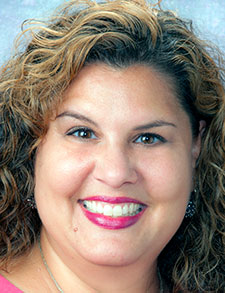
Dr. Dekosky
Dr. DeKosky is the medical director of UPMC Presbyterian Hospital Medicine, associate program director for quality and patient safety of the internal medicine residency program, and director of the hospitalist track of the ACES General Medicine Fellowship in the UPMC Presbyterian division of general internal medicine, all in Pittsburgh.
With a first career in health policy and having previously worked in the U.S. Senate, Dr. DeKosky says that medical school was not part of her original plans. However, it became her next step as she began to work with more physicians, patient advocates, and researchers.
“Hospitalists really can serve a critical role for what is next in health care in the U.S.,” Dr. DeKosky said. “We have an intimate knowledge of the systems and the intersections of inpatient and outpatient procedures, surgery, post-acute care, rehab, and need for access to primary care and emergency care—all of those things are critical to our work, and that knowledge is central to improving health care delivery.”
Cultivating young faculty in the field via education and mentorship will help build the pipeline in hospital medicine, which is smaller than many other specialties. “It’s important to make this a sustainable career so we have more senior and seasoned hospitalists to help make the field something that young doctors want to pursue,” she said.
Changing to meet the current environment faced by hospitalists is part of a mentor’s responsibility as well. “What our hospitalists who are just entering the field are navigating is very different from what we did 10 years ago. We have to evolve with it and make sure that we’re meeting our mentees where they are. And we have to be available,” she said.
For a mentee’s part, reflecting on their own vision, mission, and goals will help them find mentors for each of those areas. “You won’t find all of that in one person. Having a diverse set of mentors helps with a diverse set of interests as well,” Dr. DeKosky said.
Mirna Giordano, MD, FAAP, FHM
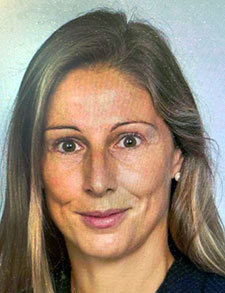
Dr. Giordano
Dr. Giordano is an associate professor of pediatrics at Columbia University Medical Center and the pediatric-critical-care and hospital-medicine-progressive-care units’ medical director at NewYork-Presbyterian Morgan Stanley Children’s Hospital, both in New York City.
Mentorship can help hospitalists take care of each other, prevent burnout, and learn from each other’s mistakes, Dr. Giordano says.
As a pediatric hospitalist for about 20 years, Dr. Giordano has had the chance to mentor in many different ways, including with a small group of female pediatric hospitalists doing surgical co-management. This team eventually joined the larger pediatric hospital medicine team. She also has met with fellows in her role as faculty for some national pediatric hospital medicine meetings.
Dr. Giordano also is involved with PULSE, a mentorship organization for those interested in medical school, and she teaches medical school students and residents. “I am fortunate to see young people in a variety of roles and hopefully contribute in some small ways to their growth.”
For those searching for mentors, Dr. Giordano suggests sending an email, approaching people at meetings, or taking part in speed mentoring events. “Following up on the initial contact is the most important step,” she said.
She also encourages hospitalists to send some thoughts of gratitude to their mentors and consider whom they may want to mentor themselves in the future. “To think ahead and believe that we could be the force that so many will be grateful for at some point is powerful,” she said.
Melinda Kantsiper, MD, FACP
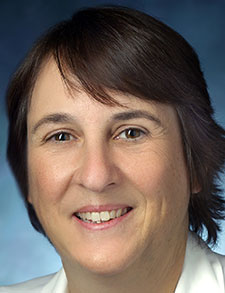
Dr. Kantsiper
Dr. Kantsiper is an associate professor of clinical medicine at Johns Hopkins School of Medicine, associate vice chair for inpatient quality and safety at Johns Hopkins Bayview Medical Center, and clinical director, division of hospital medicine at Johns Hopkins Bayview Medical Center, all in Baltimore.
Dr. Kantsiper’s early-career mentors gave her role models to look back on as she’s served as a mentor more frequently in her hospitalist career. These mentors “were able to really care about my professional development and my joy in practice and help identify opportunities for me that I would not have found on my own and encourage me to get the building blocks that would allow me to grow and succeed,” she said.
For example, with her own mentees, she will let them know about opportunities within SHM or projects that need a research collaborator.
“Having a mentor can keep you from going down dead ends,” she said.
For those who are seeking a mentor or mentors but are not part of a formal program, Dr. Kantsiper recommends joining a professional society, such as SHM or the American College of Physicians. The national conferences often provide sessions geared toward early-career physicians, and attendees can meet people from outside their institution. Or, she said, “There’s a chance you’ll meet someone from your institution who you normally would not see, but who shares common interests. Even with remote and virtual programming, you can connect with experts in the field and potential mentors.”
Areeba Kara MD, MS, FACP, SFHM
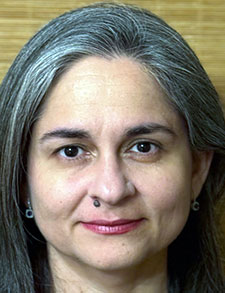
Dr. Kara
Dr. Kara is an associate professor of clinical medicine and associate division chief with the division of general internal medicine and geriatrics at Indiana University School of Medicine in Indianapolis.
Dr. Kara, who has worked in hospital medicine since 2003, has found herself mentoring in a variety of roles, not unlike many others in hospital medicine. This includes talking to colleagues about their challenges in managing work and life responsibilities, discussing difficult clinical scenarios, and providing feedback on a grant proposal or manuscript writing. “Everyone who has experiences, skills, or knowledge that someone would love to develop is positioned to be a mentor,” she said.
She also helped develop her division’s programming for faculty development and points to mentor-mentee relationships that have formed through participation in the SHM’s committees and special interest groups.
Mentorship in hospital medicine is particularly important as the specialty develops its identity, she says. “As the earliest waves of hospitalists start to approach retirement, it’s important to retain and grow what we have learned,” Dr. Kara said. “Hospital medicine is home to some of the most burnt-out clinicians in medicine. Engaging in your passions can be protective against burnout, and mentoring helps others find their passions and engage in them bravely.”
Dr. Kara would like to see some of the gaps related to the representation of women and those historically underrepresented in medicine in terms of leadership roles, in both general and hospital medicine, filled. “Those in positions to mentor and sponsor others should consider how they can equitably support the richly diverse and talented hospitalists across the country,” she said.
Jilian R. Sansbury, MD, FACP, CHSE, FHM
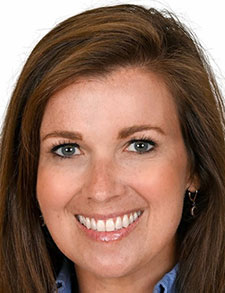
Dr. Sansbury
Dr. Sansbury is the program director of the transitional year residency program, associate program director of the internal medicine residency program, and chair of the department of medicine at Grand Strand Medical Center in Myrtle Beach, S.C.
Dr. Sansbury has worked in hospital medicine since 2015. She now works in a hybrid role in both inpatient and outpatient capacities. As part of her role, she creates and delivers a leadership lecture series for residents at the hospital. The lectures cover topics like how to be a good decision-maker, personal financial guidance, self-care, and maintaining fun in life as you develop in your career. “The residents always comment on how useful the discussions are, and they appreciate the break from a traditional didactic lecture,” she said.
One mentoring success she recalls is a resident who let her know how proud he was that he hired a cleaning service once a month. “House cleaning was a big point of argument for this resident and his significant other, and this change made a huge impact on many levels for him. For me, it was the realization that my message got through about prioritizing your time off for self-care and leisure, and that working on relationships rather than cleaning the house is important for maintaining our sanity!”
Mentoring plays an important role within medicine because of the many life roles physicians must maintain, Dr. Sansbury says. “As a woman in medicine, I didn’t have a good grasp of how difficult it would be to work full-time and have young children. That was and still is the most challenging part of fulfilling my dream of being a physician. It’s so important to understand what this reality looks like and how to work with it to achieve each of your goals.” As a mentor, she tries to provide insight into what her process has been to help other women navigate the field.
Dr. Sansbury urges those considering their potential role as a mentor not to underestimate their own experience. “Your input is invaluable to them and their growth and transition to a career in medicine—even something as simple as managing your monthly budget or what self-care looks like for you,” she said.
Meghan Sebasky, MD, FACP, SFHM
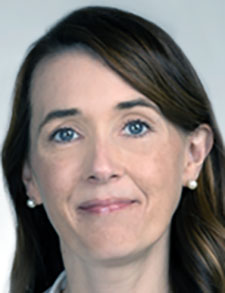
Dr. Sebasky
Dr. Sebasky is the internal medicine clerkship co-director, health sciences clinical professor, and associate vice chief of academics and medical education in the division of hospital medicine at the University of California, San Diego.
Dr. Sebasky, who has worked in hospital medicine for 13 years, takes part in an innovative mentor-related work group. The work group matches early-career faculty with one or two senior mentors in the division to form a “mentoring pod” to complete an achievable project that is likely to result in scholarly output.
“We theorize that matching mentors and mentees who are aligned with a defined, operational, quality improvement, or medical education project will create a successful mentorship relationship for the duration of the project and potentially into the future,” she said.
Dr. Sebasky encourages those seeking a mentor to reflect on their role as a mentee. “A successful mentee is the driver of the relationship and has taken time to reflect on their goals prior to engaging a mentor,” she said. Potential mentees also should look for people in roles they aspire to have in the future or who are doing work that’s of interest to them.
“Start with one person on that list, and find a time to meet with them to explore compatibility. Potential mentors are everywhere, and I would propose that you seek out multiple [mentors],” she said.
She also calls mentorship an “interesting journey” as new hospitalists often seek mentors and then, before realizing it, they themselves have enough experience and connections to be mentors. However, they may not have received dedicated training or faculty development on how to be an effective mentor.
A traditional view of mentorship involves a “senior” hospitalist meeting with a “junior” hospitalist, but she says that this is only one model that can be successful. “Take a moment to consider the mentors you interact with currently. I think many of us will be able to identify peer mentors, near-peer mentors, or mentorship groups that have created opportunities for us and contributed to our professional growth, even if we have not previously given these individuals the ‘mentor’ label,” she said.
Ann M. Sheehy, MD, MS
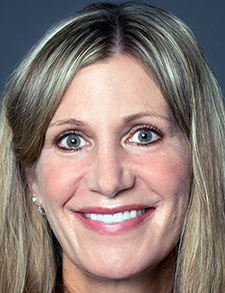
Dr. Sheehy
Dr. Sheehy is the University of Wisconsin (UW) Health senior medical director of population health and president of the UW Health accountable care organization, deputy director for health policy research for UW Center for Health Disparities Research, and professor in the department of medicine, division of hospital medicine, UW School of Medicine and Public Health, all in Madison, Wisc.
In her previous role as division head of hospital medicine for more than a decade, Dr. Sheehy and her leadership team helped support hospitalists to achieve clinical, educational, research, and administrative goals. This included fostering manuscript collaborations and advocating for time to successfully compete for National Institutes of Health Career Development (K) awards. “Most importantly, we developed a leadership team that I think was able to be nimbler in mentoring physicians in areas of specific interest,” she said.
Dr. Sheehy points out that she sees mentoring as a team effort but that she is particularly proud of helping to grow the division from 13 to 80 people over her time as division head.
Mentorship within hospital medicine is particularly important because most hospitalists are not fellowship-trained and may not have been career-mentored before. “In that sense, mentorship fills a gap, especially for newly trained hospitalists,” she said. “In addition, hospitalists quickly become health systems experts because hospitalist practice is closely aligned with hospital operations, quality and safety, health policy, and medical education. As a result, hospitalists have so much to offer in health care at large, and are ideally suited for many leadership roles, such as chief medical officers, chief quality officers, and residency program directors. Mentorship is critical for hospitalists wanting to pursue such roles.”
Dr. Sheehy encourages those who want to pursue interests outside of clinical work, such as research, to be intentional about carving out time for those interests. “Mentorship and sponsorship are important components of that,” she said.
Vanessa Caceres is a medical writer in Bradenton, Fla.